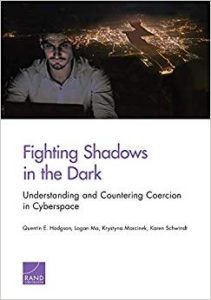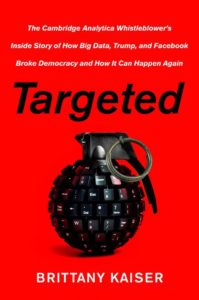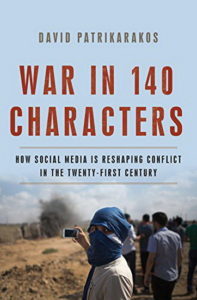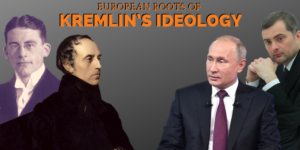Russian government-backed cyber aggression is heightening concerns from the west following a spate of high-profile incidents, prompting threats of countermeasures from the likes of Nato, the EU and UK, the Financial Times reports:
To counter the heightened cyber threats, the UK’s ministry of defence in August announced the creation of a new army unit to focus on “intelligence, counter-intelligence, information operations, electronic warfare, cyber and unconventional warfare”. The EU said in June that it would conduct war-games to prepare for any cyber attacks, signalling the bloc’s determination to increase co-operation against Russian and Chinese meddling. This would involve finance and home affairs ministries simulating everything from fake news to data theft to hacking into the operational technology of critical national infrastructure.
 Russia’s cyber policy has switched from information gathering to offensives and disrupting important industries, said Mike Beck, global head of threat analysis at cyber group Darktrace.
Russia’s cyber policy has switched from information gathering to offensives and disrupting important industries, said Mike Beck, global head of threat analysis at cyber group Darktrace.
Foreign electoral interference seriously threatens European democratic societies to the benefit of anti-EU, right-wing extremist and populist forces, according to the European Parliament. MEPs called for an upgrade of the EU East StratCom Task Force to a permanent structure with significantly higher financing.
In its 2019 report, Freedom House downgraded Hungary to “partly free,” a concerning development that mirrors a dramatic rise in authoritarianism in Central and Eastern Europe, with shrinking space for a free and civil society spurred on by pro-Kremlin mouthpieces, such as RT and Sputnik, notes U.S. Rep. Marcy Kaptor (D-Ohio). The Hungarian people have seen well established independent newspapers snuffed out, while social media platforms like Twitter and Facebook are widely used by Moscow to spread disinformation, propagate hate speech, and sow public division, she writes for The Hill.
 What makes Brittany Kaiser’s book, Targeted, so vital is that .. [b]eyond the story of the rise and fall of Cambridge Analytica, it is about the experience that awaits all of us in a society that has reconfigured itself around a new and overarching source of power: data, notes David Patrikarakos, author of “War in 140 Characters: How Social Media Is Reshaping Conflict in the Twenty-First Century.”
What makes Brittany Kaiser’s book, Targeted, so vital is that .. [b]eyond the story of the rise and fall of Cambridge Analytica, it is about the experience that awaits all of us in a society that has reconfigured itself around a new and overarching source of power: data, notes David Patrikarakos, author of “War in 140 Characters: How Social Media Is Reshaping Conflict in the Twenty-First Century.”
When Kaiser starts work, she is told that Cambridge Analytica databases “held between two thousand and five thousand individual data points (pieces of personal information) on every individual in the United States over the age of eighteen . . . some 240 million people.” She is understandably staggered, he writes for the Post:
But, as [CA CEO Alecander] Nix explains to her, merely having Big Data isn’t the solution. You have to know what to do with it, and this, very simply, involves more scientific and precise ways of putting people into boxes — “Democrat,” “environmentalist,” “optimist” and so on — before identifying and sorting them using behavioral psychology. CA’s employees were, as Kaiser would pitch, specialists in “the science of behavioral change communication.” They took “behavioral and clinical and experimental psychology and combined that with world-class data analytics.”
 Kaiser’s former colleague Christopher Wylie describes how the CA-linked Strategic Communications Lab used social media to break down psychological resilience…. by creating “unrealistic perceptions in the targets that result in confusion and damaging self-efficacy,” then following up with counternarratives “to foster distrust,” “trigger negative emotions” and “provoke disunity,” notes Clint Watts, a distinguished research fellow at the Foreign Policy Research Institute and the author of “Messing With the Enemy: Surviving in a Social Media World of Hackers, Terrorists, Russians and Fake News.”
Kaiser’s former colleague Christopher Wylie describes how the CA-linked Strategic Communications Lab used social media to break down psychological resilience…. by creating “unrealistic perceptions in the targets that result in confusion and damaging self-efficacy,” then following up with counternarratives “to foster distrust,” “trigger negative emotions” and “provoke disunity,” notes Clint Watts, a distinguished research fellow at the Foreign Policy Research Institute and the author of “Messing With the Enemy: Surviving in a Social Media World of Hackers, Terrorists, Russians and Fake News.”
According to Wylie, his understanding of these psychological dynamics influenced the foundation and rapid creation of Cambridge Analytica’s political-warfare operations, he writes for the Post:
By 2014, Cambridge Analytica had harvested millions of Facebook profiles identifying users’ “big five traits”: openness, conscientiousness, extroversion, agreeableness and neuroticism. The firm then mapped these traits alongside what it called the “dark triad” minority traits of “narcissism (extreme self-centeredness), Machiavellianism (ruthless self-interest) and psychopathy (emotional detachment).” By Wylie’s account, Cambridge Analytica would engage those who exhibited dark triad traits, “introducing narratives via Facebook groups, ads, or articles that the firm knew from internal testing were likely to inflame the very narrow segments of people with these traits.”

Source: StopFake
As cognitive psychologist Gordon Pennycook, of the University of Regina, and co-author David Rand pointed out in a 2018 paper in the journal Cognition, the phenomenon of fake news – the spread of patently false stories – is nothing new. But the phenomenon seems to have reached new heights with the rise of social media, The Globe and Mail reports:
Part of the reason people fall for false content lies in the way our brains take in information, says neurologist Lesley Fellows, a professor at McGill University who has studied how the brain makes political decisions. Our brains are constantly and heavily filtering the world around us through a framework of biases and stereotypes created through our experiences.
“It’s a general feature of the brain. It can’t possibly cope in fact with all the information out there, so we use our prior experience to filter the information in,” she said, noting this function explains how optical illusions work: “The brain imagines how things ought to be and it takes the information that fits with that [assumption].”
 The disinformation process is a dialogue; where the liar carefully adapts to the values of the audience; picking up concepts, ideas, multiplying messages and packaging hard lies in a soft enclosure of half-truths and facts, taken out of context. An example of this dialogue is the concept of “sovereignism”, relatively recently appearing in the European political terminology, EU vs. Disinfo adds:
The disinformation process is a dialogue; where the liar carefully adapts to the values of the audience; picking up concepts, ideas, multiplying messages and packaging hard lies in a soft enclosure of half-truths and facts, taken out of context. An example of this dialogue is the concept of “sovereignism”, relatively recently appearing in the European political terminology, EU vs. Disinfo adds:
Influential Kremlin insider Vladislav Surkov used the concept of sovereignty as a core element outlining a national idea for Russia. Eventually, the concept of “Sovereign Democracy” was conceived – a kind of democracy, defined not by traditional democratic standards, but by Russian national traditions of sovereignty. …..Bulgarian political scientist Ivan Krastev* has used the term “sovereignist” to describe the Kremlin ideology, displaying the connection with European political theorists as Francois Guizot (1787 – 1874) and Carl Schmitt (1888 – 1985).
*A contributor to the NED’s Journal of Democracy.







